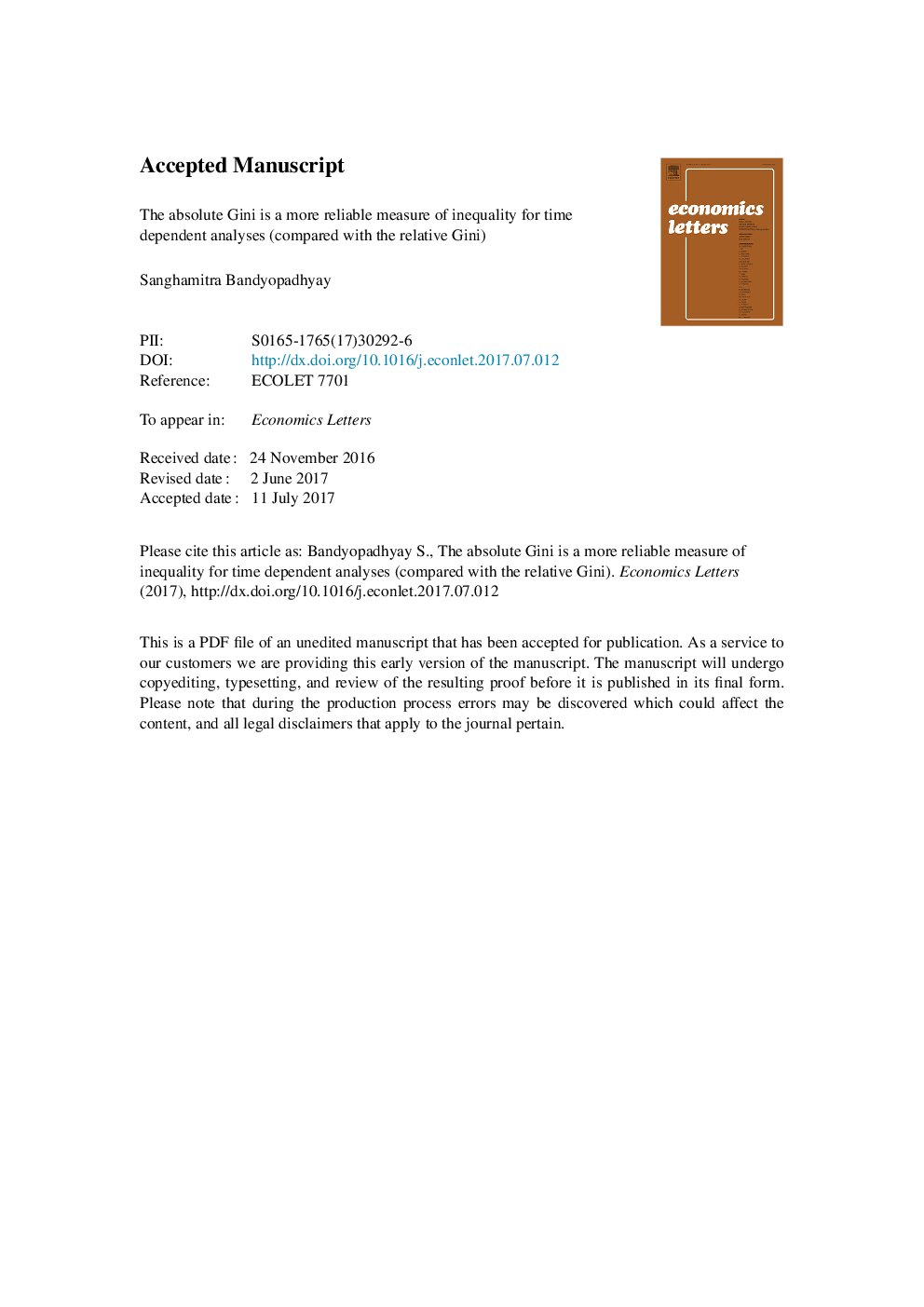| Article ID | Journal | Published Year | Pages | File Type |
|---|---|---|---|---|
| 7349585 | Economics Letters | 2018 | 13 Pages |
Abstract
I compare time series properties of relative and absolute Ginis to examine which one is better suited for time dependent analyses. In particular, I model Gini trends as a fractionally integrated process and find that there are more mean-reverting absolute Ginis than relative Ginis suggesting that absolute Ginis may be better suited than relative Ginis for time-dependent analyses. I then undertake an estimation of the inequality-growth relationship using popular panel regression methods and find that the absolute Gini is negatively and significantly associated with growth for most models estimated, but none for the relative Gini. I deduce that from an empirical point of view, the absolute Gini may be a better choice when undertaking time dependent analyses.
Keywords
Related Topics
Social Sciences and Humanities
Economics, Econometrics and Finance
Economics and Econometrics
Authors
Sanghamitra Bandyopadhyay,
